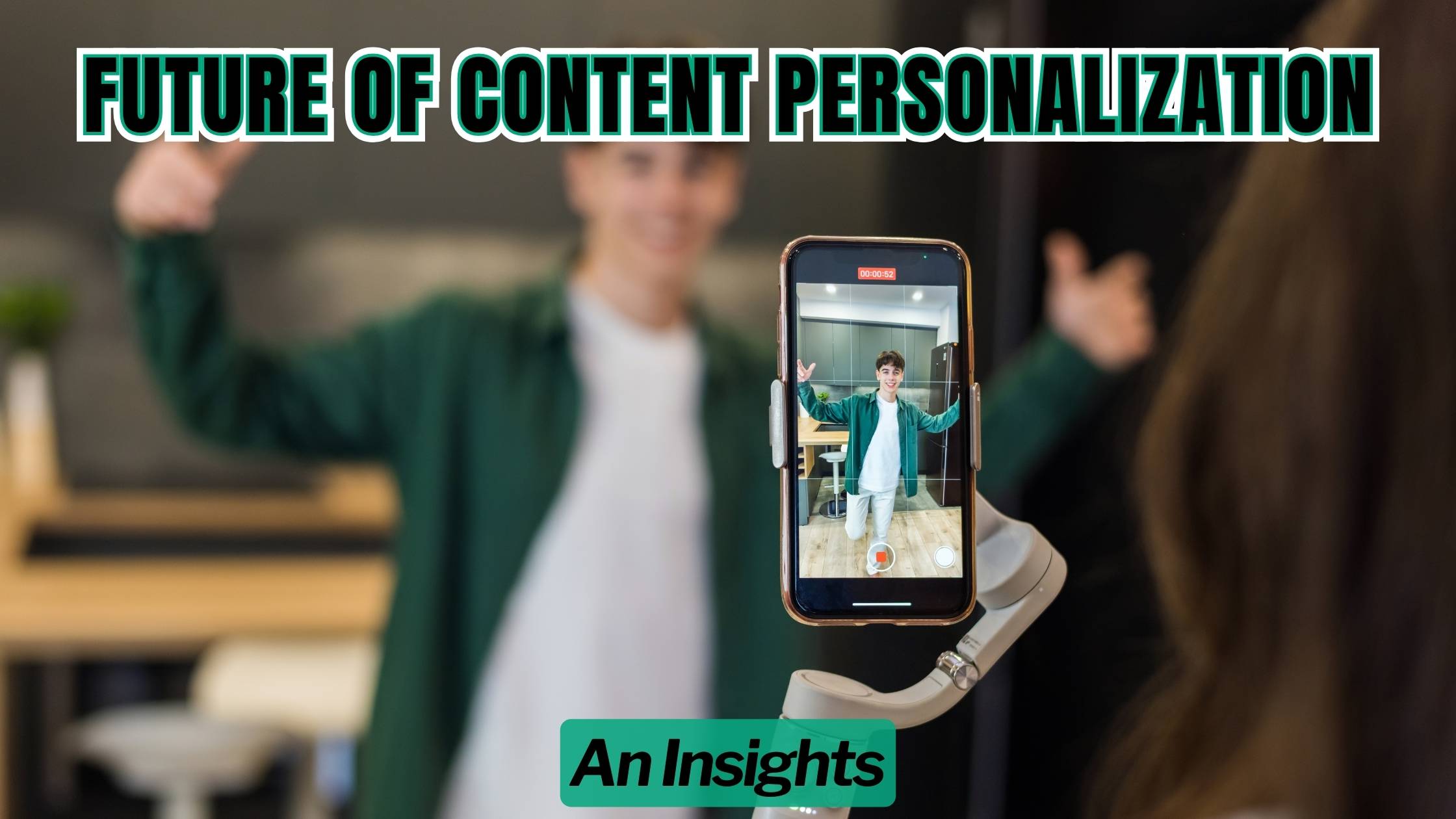Future of content personalization: Insights


Future of Content Personalization: Insights
In today’s digital landscape, where consumers are inundated with vast amounts of content, personalization has emerged as a key strategy for businesses to engage and retain their audiences. As technology continues to evolve and consumer expectations shift, the future of content personalization holds exciting possibilities and challenges. In this article, we’ll delve into the trends, technologies, and strategies shaping the future of content personalization, providing valuable insights for businesses looking to stay ahead in the dynamic world of digital marketing.
The Evolution of Content Personalization
Content personalization has come a long way from basic demographic segmentation to sophisticated AI-driven algorithms that deliver hyper-targeted experiences. With advancements in data analytics, machine learning, and automation, businesses can now tailor content based on individual preferences, behaviors, and context in real-time.
1. AI-Powered Recommendation Engines:
AI-powered recommendation engines, like those used by Netflix and Amazon, analyze vast amounts of user data to suggest relevant content, products, or services. These algorithms continuously learn and adapt based on user interactions, delivering increasingly personalized recommendations over time.
2. Predictive Analytics:
Predictive analytics utilizes historical data and statistical algorithms to forecast future outcomes, including consumer behavior and preferences. By leveraging predictive analytics, businesses can anticipate user needs and deliver content tailored to individual interests before they even express them.
3. Contextual Personalization:
Contextual personalization involves delivering content based on the user’s current context, such as their location, device, or browsing behavior. For example, a retail app may send notifications about nearby store promotions based on the user’s geolocation.
4. Hyper-Personalization:
Hyper-personalization takes content personalization to the next level by creating highly individualized experiences for each user. This may include dynamically generated content, personalized offers, or customized product recommendations tailored to the user’s unique preferences and behavior.
5. Voice and Conversational Interfaces:
With the rise of voice assistants and conversational interfaces, such as Siri and Alexa, content personalization is extending beyond traditional digital channels. Businesses can now leverage voice data to understand user intent and deliver personalized responses and recommendations in real-time.
The Future Landscape of Content Personalization
Looking ahead, the future of content personalization promises even greater levels of sophistication and integration across channels and touchpoints. Here are some key trends and developments shaping the future landscape of content personalization:
1. Augmented Reality (AR) and Virtual Reality (VR):
AR and VR technologies offer immersive experiences that can be personalized to individual preferences and interests. From virtual try-on experiences in e-commerce to personalized tours in real estate, AR and VR have the potential to revolutionize content personalization in various industries.
2. Emotion AI:
Emotion AI, also known as affective computing, enables machines to detect and respond to human emotions. By analyzing facial expressions, tone of voice, and other physiological signals, businesses can tailor content and interactions to match the user’s emotional state, fostering deeper engagement and connection.
3. Zero-Party Data:
As privacy concerns continue to grow, zero-party data—data that consumers willingly and proactively share with businesses—is becoming increasingly valuable for content personalization. By transparently collecting and respecting consumer preferences, businesses can build trust and deliver more relevant experiences.
4. Content Atomization:
Content atomization involves breaking down large pieces of content into smaller, reusable components, allowing businesses to personalize content at a granular level. This approach enables greater flexibility and agility in delivering personalized experiences across multiple channels and devices.
5. Unified Customer Data Platforms (CDPs):
Unified CDPs consolidate customer data from various sources into a single, comprehensive view, enabling businesses to create unified customer profiles for more accurate personalization. By integrating data silos and facilitating seamless data sharing, CDPs empower businesses to deliver cohesive, personalized experiences across the entire customer journey.
Relevant SaaS Products for Content Personalization
1. Optimizely:
Optimizely is a leading experimentation platform that enables businesses to test and optimize content variations to deliver personalized experiences to their audience.
2. Dynamic Yield:
Dynamic Yield provides a comprehensive personalization platform that leverages AI and machine learning to deliver individualized experiences across web, mobile, and email channels.
3. Adobe Target:
Adobe Target is part of the Adobe Experience Cloud and offers advanced personalization capabilities, including A/B testing, audience segmentation, and automated optimization.
4. Evergage:
Evergage is a real-time personalization platform that allows businesses to deliver one-to-one personalized experiences across websites, mobile apps, and email.
5. Segment:
Segment is a customer data platform that helps businesses collect, clean, and unify customer data from various sources to power personalized marketing campaigns and experiences.
Leveraging Subscribed.FYI for Content Personalization Solutions
Subscribed.FYI serves as a valuable resource for businesses seeking to explore and compare various SaaS tools for content personalization, from AI-driven recommendation engines to predictive analytics platforms and beyond. By leveraging Subscribed.FYI, businesses can access comprehensive information, user reviews, and pricing details to identify and implement the right solutions for their content personalization strategies effectively.
In conclusion, the future of content personalization holds immense potential for businesses to create meaningful connections with their audiences by delivering relevant, timely, and engaging experiences across channels and touchpoints. By embracing emerging technologies, trends, and strategies, businesses can stay ahead of the curve and drive sustainable growth in an increasingly competitive digital landscape.








